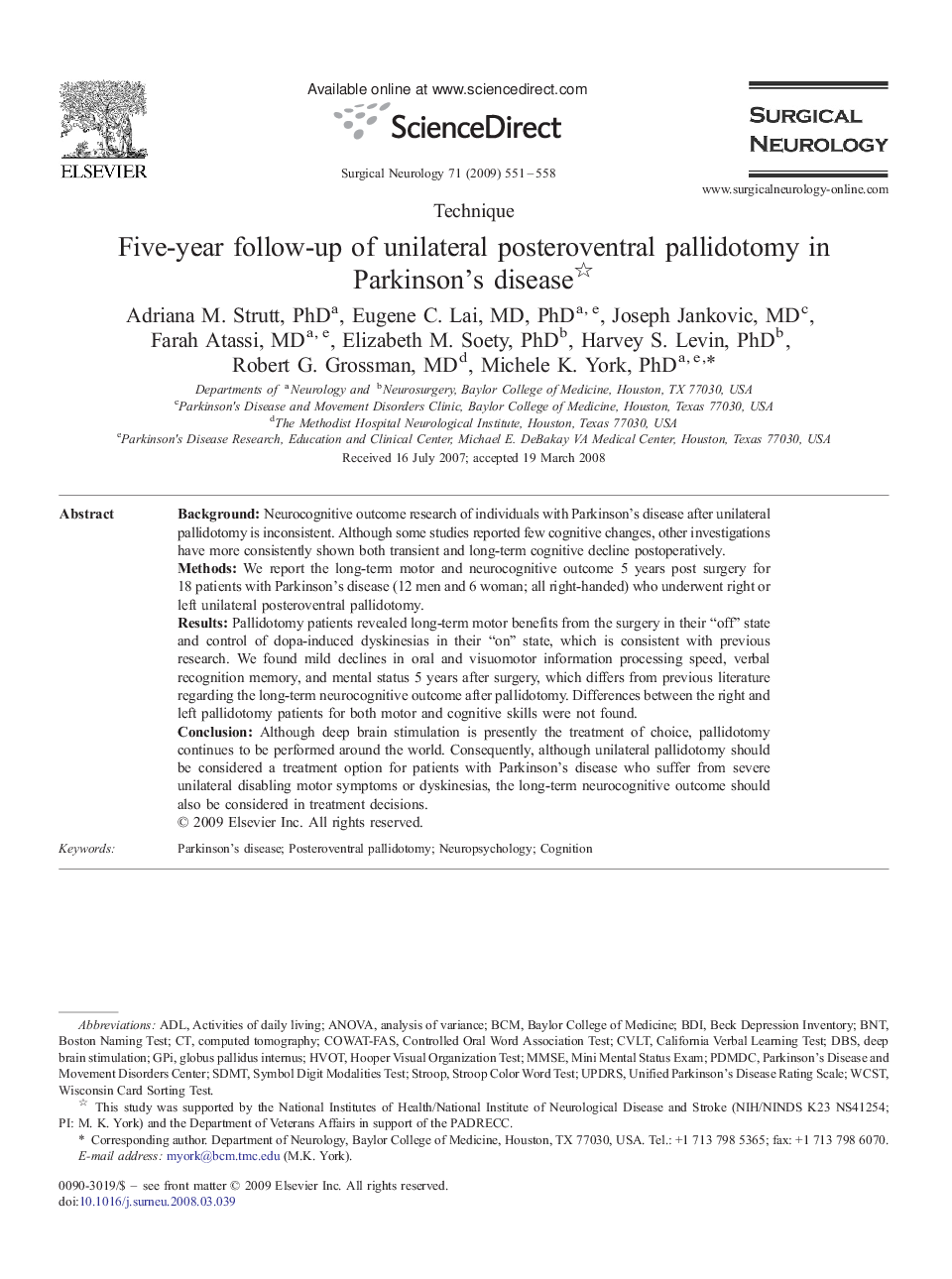| Article ID | Journal | Published Year | Pages | File Type |
|---|---|---|---|---|
| 3092608 | Surgical Neurology | 2009 | 8 Pages |
BackgroundNeurocognitive outcome research of individuals with Parkinson's disease after unilateral pallidotomy is inconsistent. Although some studies reported few cognitive changes, other investigations have more consistently shown both transient and long-term cognitive decline postoperatively.MethodsWe report the long-term motor and neurocognitive outcome 5 years post surgery for 18 patients with Parkinson's disease (12 men and 6 woman; all right-handed) who underwent right or left unilateral posteroventral pallidotomy.ResultsPallidotomy patients revealed long-term motor benefits from the surgery in their “off” state and control of dopa-induced dyskinesias in their “on” state, which is consistent with previous research. We found mild declines in oral and visuomotor information processing speed, verbal recognition memory, and mental status 5 years after surgery, which differs from previous literature regarding the long-term neurocognitive outcome after pallidotomy. Differences between the right and left pallidotomy patients for both motor and cognitive skills were not found.ConclusionAlthough deep brain stimulation is presently the treatment of choice, pallidotomy continues to be performed around the world. Consequently, although unilateral pallidotomy should be considered a treatment option for patients with Parkinson's disease who suffer from severe unilateral disabling motor symptoms or dyskinesias, the long-term neurocognitive outcome should also be considered in treatment decisions.
